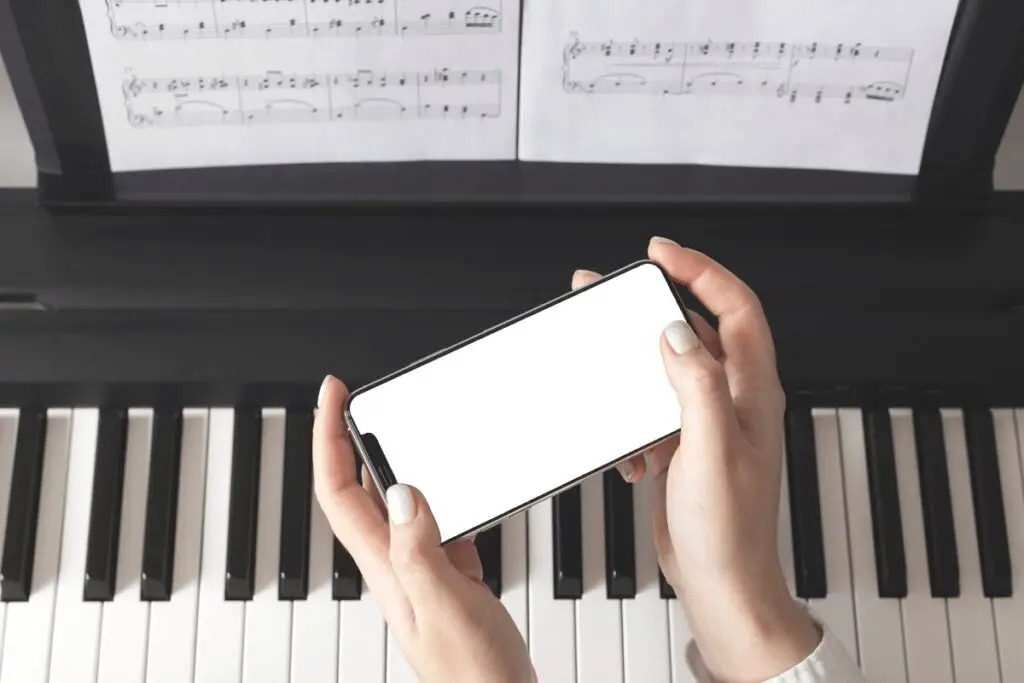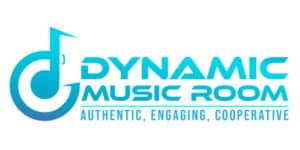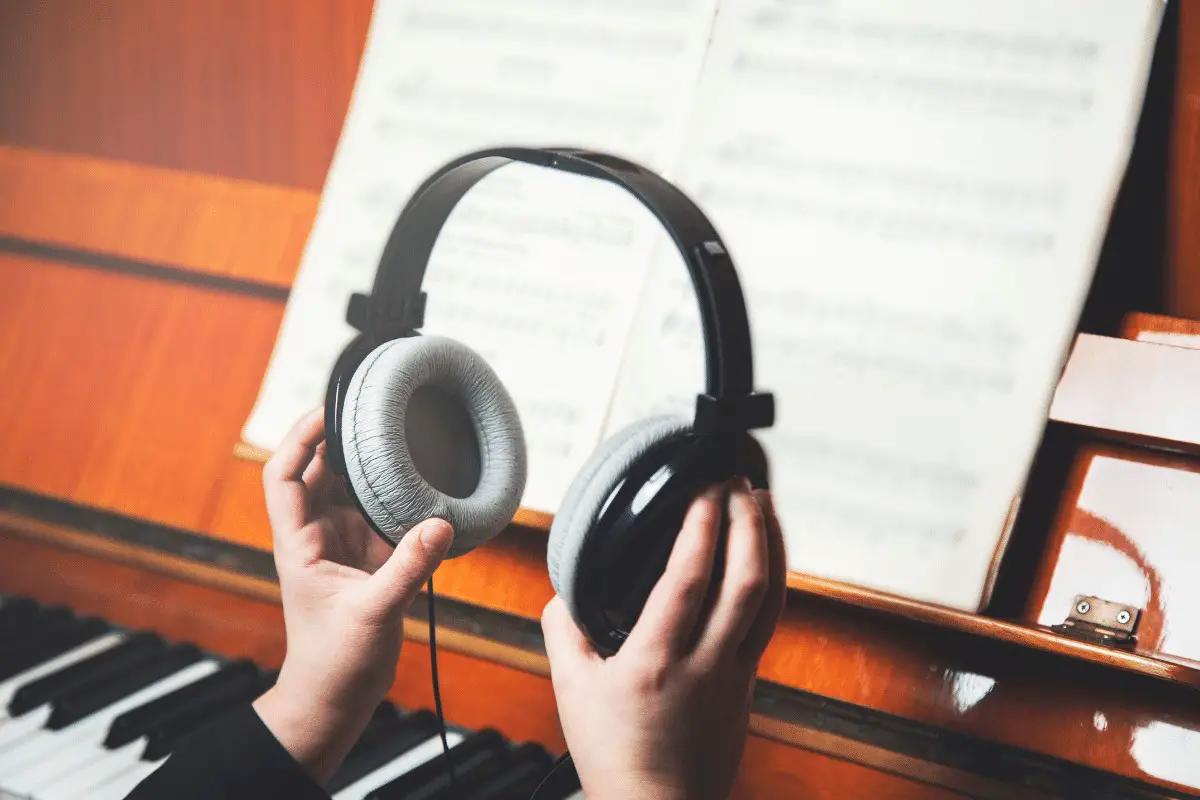Learning piano is a dream most people want to realize.
It’s one of the top New Year’s resolutions every year, and as a musician, not learning an instrument is one of the regrets I hear the most from folks.
But not many people want to go in and get private lessons. They want to learn from home and on their own time.
One of the few positives of the past few years is the rise in materials for learning at home, so the answer to the question Can piano be self-taught? has changed quite a bit.
Playing the piano is very difficult to learn independently, but it’s possible with the right tools. Established courses, learning tools, and a drive to practice and learn will help you gain proficiency. Even so, it’s faster to learn from a personal teacher.
With this in mind, there are 9 ways to learn piano at home I’d like to put out there for you to look at.
Any of these work with acoustic pianos or digital pianos.
Let’s get playing!
Table of Contents
Flowkey
Flowkey is a piano learning program developed by Yamaha.
Play online with your desktop or app to learn piano in an engaging way, unlike most other programs out there.
I’ve tried out many learning programs for the piano, and few come close to what Flowkey has to offer.
Its big pluses for those who want to be self-taught at the piano are:
- Quality lessons on piano
- Great learning tools for breaking down songs into digestible chunks for practicing
- Access to thousands of songs for all levels of players in all genres (from Jazz music to Classical music to Pop music)
If that sounds too good to be true, that’s what I thought at first, too.
But when I checked it out, I was impressed despite my reluctance to give it a shot.
Of course, it comes at a price.
Flowkey needs a monthly subscription to get all that access.
In reality, though, it’s a small percentage of what you’d pay for lessons per month.
They have a portion of their resources up for free, and you can always sign up for a month, check it out, and cancel your subscription.
This is exactly what I’d suggest for anyone looking to become a self-taught pianist.
Check this out for a month or two and see what comes of it.
The lessons are structured well for any level, from beginner to advanced players.
YouTube
The piano is one of the harder instruments to play, especially if you’re just starting.
YouTube is full of videos of pianists performing covers of popular songs.
There are also tons of tutorials and instructional videos on playing the piano.
From beginners to intermediate to advanced players, YouTube has something for everyone.
And if you’re looking to learn piano from scratch, there’s no better place to start than YouTube if you don’t want to pay a dime.
The downside of learning from YouTube is that you’ll never know whether or not the person teaching you is good.
It could be someone doing it for fun or money. Or they could be a self-taught musician with no real experience or expertise.
So make sure you watch enough videos before committing to anything.
It also won’t follow any kind of lesson structure.
The odds are much higher that you’ll end up missing out on some crucial aspect of piano playing because the videos didn’t cover it, or you never came across the video.
Online Private Piano Lessons
Private piano lessons are great for serious students who want to go beyond the basics.
They’re usually done over Skype or FaceTime, where you can sit down and talk to your instructor about your progress.
These formal lessons tend to be more focused on technique and theory than just learning the notes.
But they’re expensive and hard to find.
The price of private piano lessons is expensive, but it’s also the best quality learning out there.
Online piano studies aren’t quite as good as in-person ones, but you don’t have to travel, and you get access to different teachers than just the ones in your area.
A digital piano may be better for this format as the sound can be piped into your meeting directly.
Piano Method Books
Many people think that piano method books are only useful for kids.
But that couldn’t be further from the truth.
I’ve been using them since I started taking music lessons.
They help me keep track of everything I’m supposed to practice each week.
They also provide a framework for practicing.
If you’re interested in learning piano, these books will show you how to put together a weekly schedule and stick with it.
While the books usually work best in conjunction with a private piano teacher, they don’t have to.
I wouldn’t necessarily recommend a brand new player just go off of piano books; someone with more experience can still make good progress playing through method books.
For kids and players with less experience, I recommend the Alfred Piano Book Series.
If you’re looking for something for adults, I know friends who learned on their own with Alfred’s Adult Piano books and were quite successful.
These books were developed with the help of great piano players and teachers.
They’ll help you learn how to read sheet music and how to play simple songs.
This is great as a base for jumping off to harder songs.
Plus, you only have to buy the book one time rather than having a recurring subscription fee.
Video Course

Video courses are becoming more and more all the rage.
It seems like everywhere you turn, there’s someone offering a course on their website for whatever skill you want to learn.
This isn’t a bad thing at all, though.
It means there are more resources out there for us to use at home.
But it also means, like YouTube, there are probably some duds out there as well.
Courses are still better than YouTube, though, because the videos are thought out in a progression.
The odds of you missing a crucial part of piano playing is less.
There are a lot of great courses out there, but my students have enjoyed the ones on the following platforms the most:
- Udemy (specifically PianoForAll)
- SkillShare (specifically the Learn To Play Piano in 45 Days course)
- MasterClass (help from a professional musician)
Online Group Piano Classes
If you want the direction of private lessons without the price of one-on-one instruction, look for some group piano lessons online.
These are definitely harder to find, but you won’t have to spend as much.
Of course, on the other hand, you won’t get as much specific help compared to private lessons.
It’s more like group practice sessions where the teacher gives you a bit of help throughout the lesson.
Look at places that offer online classes, such as universities and community colleges.
They may be able to point you in the right direction.
Solfeg.io
Solfeg.io is another awesome program out there similar to Flowkey.
This one doesn’t have the library of songs that Flowkey does, and the lessons aren’t as thorough.
It’s, overall, a smaller program.
But I like how this program helps to develop your ear and listening more than most other programs out there.
Plus, I have worked with these people before and know how seriously they want to help every person learn how to play or sing better.
They even offer specific programs for schools and young learners.
Simply Piano
Piano apps like Simply Piano by Joy Tunes are another way to learn piano.
Similar to programs like Flowkey and Solfeg.io, Simply Piano goes through specific lessons and playalongs.
Overall, the lessons are less thorough, and the songs have fewer learning tools.
But the convenience of being able to work directly off an app is important.
Still, if you’re going to spend money on a program, I’d stick with Flowkey.
You’ll get more bang for your buck that way.
But if you have an Apple gift card or something, check it out. It’s still a great resource.
Learn By Ear
Playing the piano by ear is tough.
All those people you see that do it have mountains of experience in playing piano under their belts.
Only rarely will you see child prodigies who can do it without practice.
Even then, these people still need to practice and take lessons to help get the finger technique down to support their ears.
- If you go with this method, expect to be frustrated, but it’ll actually help you ear learn faster over time.
- Pick a slow song to start with and listen to it on repeat.
- Match the notes of the melody or tune with your right hand on the piano.
- Now, stop with the right hand and spend some time learning the left hand.
- Without the recording, play each hand on its own until it’s automatic for you.
- Slowly, play both hands at the same time.
- Practice a bit faster and faster until there your playing is up to speed.
This whole process may take many days or weeks, depending on the difficulty of the song and your own skills.
But it is possible to teach yourself piano this way.

